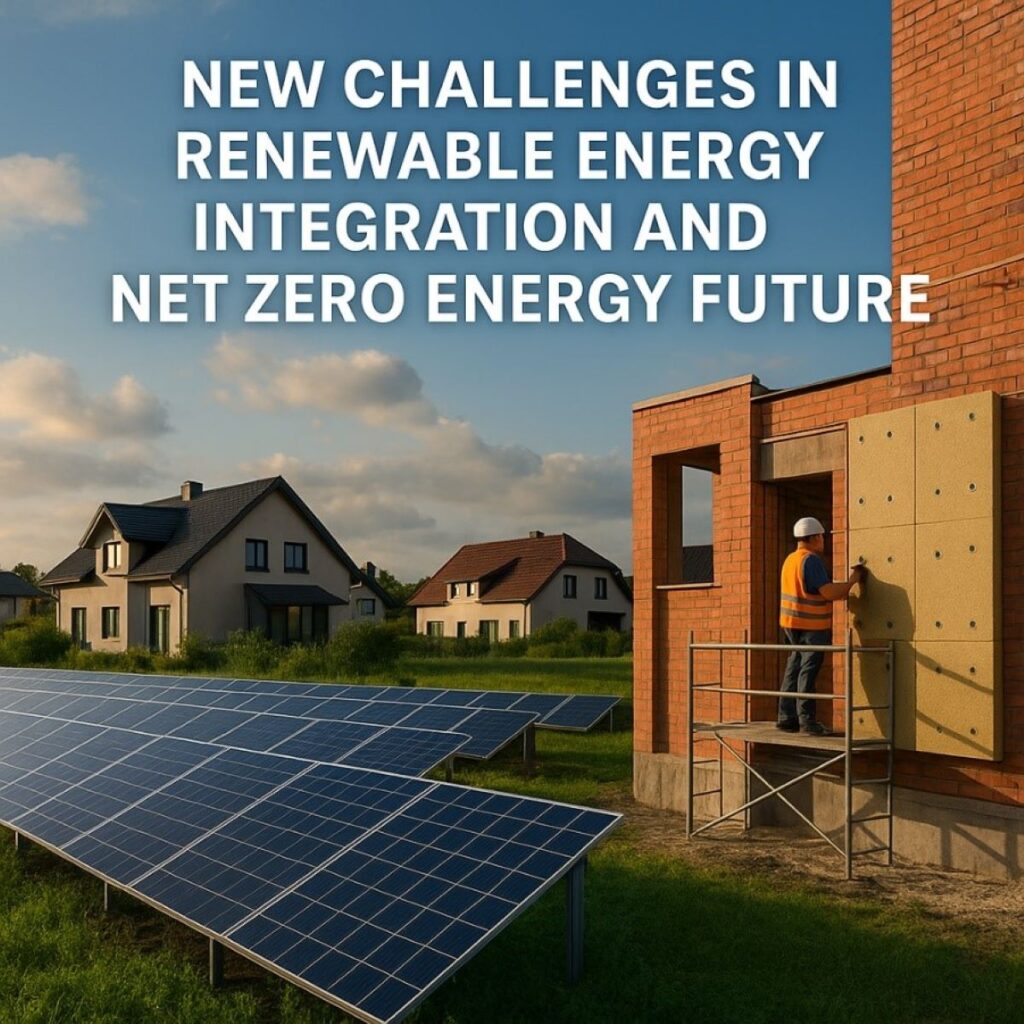
Prof Dr Saim Memon Guest editor Energies (MDPI) Special Issue: Renewable Energy Integration & the Net-Zero Future — Call for Papers
Special Issue: New Challenges in Renewable Energy Integration and Net Zero Energy Future
Journal: Energies (MDPI, open access; peer-reviewed) — Section A: Sustainable Energy
Submission deadline: 28 November 2025 (submission window open) MDPI+1
Guest Editor: Professor Saim Memon, CEO of Sanyou London; Birmingham City University (UK)
Special Issue page: https://www.mdpi.com/journal/energies/special_issues/2OX9XS53W3 MDPI
Instructions for Authors: https://www.mdpi.com/journal/energies/instructions MDPI
What is this Special Issue about?
This collection focuses on how to integrate renewable energy realistically into homes, campuses, estates and grids—so that net-zero is not just a model, but a delivered outcome. We encourage papers that bridge technical performance, cost, adoption and operations, with a premium on experimental validation and deployment-ready insight.

Topics of interest (non-exhaustive)
- Energy storage for daily shifting and resilience;
- Electric-vehicle energy management (charging strategies, V2X impacts, thermal management and ageing);
- Hybrid renewable systems (PV-battery-thermal hybrids; PVT; solar-plus-storage);
- Vacuum-insulation solutions for net-zero energy buildings (e.g., Vacuum Insulated Wallpaper, Decorative Integrated VIP, Flexible VIP formats);
- Low-cost insulation and fabric-first retrofits that work in constrained spaces;
- Smart energy management for buildings, districts and microgrids;
- AI-assisted optimisation for grid-side and household-side applications (forecasting, scheduling, anomaly detection, fault tolerance, control).
What does the Guest Editor look for?
Q: Is artificial intelligence welcome?
A: Yes—when it is embedded in real systems. We especially welcome studies where AI does more than simulate: it predicts, adapts and improves energy performance in live settings (homes, public buildings, campuses, industrial sites), with measured results and clear baselines.
Q: Must papers include experiments?
A: Strongly encouraged. Hybrid papers that combine experimental data with techno-economic analysis, installer/user feedback and adoption barriers are particularly valuable. If the work is modelling-led, show validation against field data or accepted benchmarks, and discuss how the model will be implemented.
Q: Is “fabric-first” relevant?
A: Absolutely. Demand-side reductions—for example through ultra-thin vacuum insulation—often deliver the cheapest watt saved. We invite case studies that quantify U-value gains, energy savings, comfort, cost and disruption, including hot-arid and cold-arid contexts.
What will help your paper stand out?
- Deployment evidence: pre-/post-measurements (kWh, kW, comfort, reliability), uncertainty analysis, and practical constraints (space, heritage, downtime).
- Total cost view: capex, opex, maintenance, financing and payback under realistic tariffs.
- Replicability: bill of materials, control logic outlines, installer training needs and commissioning steps.
- Data & governance: anonymised datasets or clear data-access notes; safety, compliance and product-safety planning where relevant.
- People and process: user acceptance, contractor workflows, skills and training—often the overlooked reason good ideas stall.
Why Energies?
Energies is an international, peer-reviewed, open-access journal covering the full energy chain from supply to end use. All submissions follow standard MDPI peer review via the journal’s online system; the Special Issue is curated by the Guest Editor team but uses the journal’s editorial standards. MDPI+1
How to submit
- Review the Special Issue page for scope and dates:
https://www.mdpi.com/journal/energies/special_issues/2OX9XS53W3 MDPI - Check the Instructions for Authors (formatting, ethics, data availability, article types):
https://www.mdpi.com/journal/energies/instructions MDPI - Submit your manuscript through the MDPI system and select this Special Issue at submission.
- For procedural queries, contact the MDPI Energies editorial team via the Special Issue page (Special Issue Editor contact). MDPI
Why this matters to industry and policy
The net-zero transition will only move at pace if solutions are adoptable—technically solid, affordable, and easy to install and operate. High-quality research that proves performance in the field, explains risks, and documents what it takes to scale will help estates, developers and utilities invest with confidence.
Invitation from the Guest Editor:
“Let’s move from theory to practice. Show us the experiments, the dashboards, the commissioning checklists and the lessons learned. Net-zero needs evidence we can build on.”
About the Guest Editor
Professor Saim Memon is CEO of Sanyou London and serves with Birmingham City University (UK). His interests span vacuum-insulation energy technologies, solar and building energy systems, and the practical pathways that take inventions from laboratory to mass-manufacture and into everyday buildings and infrastructure.
Work with Sanyou London
If your research intersects vacuum insulation, fabric-first retrofits, or AI-enabled building operation, Sanyou London collaborates on pilots, data collection and validation to help turn promising ideas into deployable products and specifications for housing, education, healthcare and commercial estates.
Contact: www.sanyoulondon.com | Special Issue: MDPI Energies — New Challenges in Renewable Energy Integration and Net Zero Energy Future. MDPI
Hashtags: #callforpapers #RenewableEnergyIntegration #NetZeroEnergy #EnergyStorage #EVEnergyManagement #HybridRenewables #VacuumInsulation #LowCostInsulation #BuildingRetrofits #SmartEnergyManagement #AIinEnergy #GridOptimisation #ResidentialAI #OpenAccess #EnergiesMDPI
Note: Submission deadline and scope as listed on the MDPI site at the time of posting. Please refer to the Special Issue page and the Instructions for Authors for the latest details. MDPI+1
Share

